𝗦𝗧𝗘𝗣 𝟭. Get familiar with the test format to have a general idea of what you will be going through.
- read general information about the test format
- look through the sample tests
- watch the official IELTS videos on how Speaking is tested
𝗦𝗧𝗘𝗣 𝟮. Decide on your target overall band score and the score you may need in each part of the test.
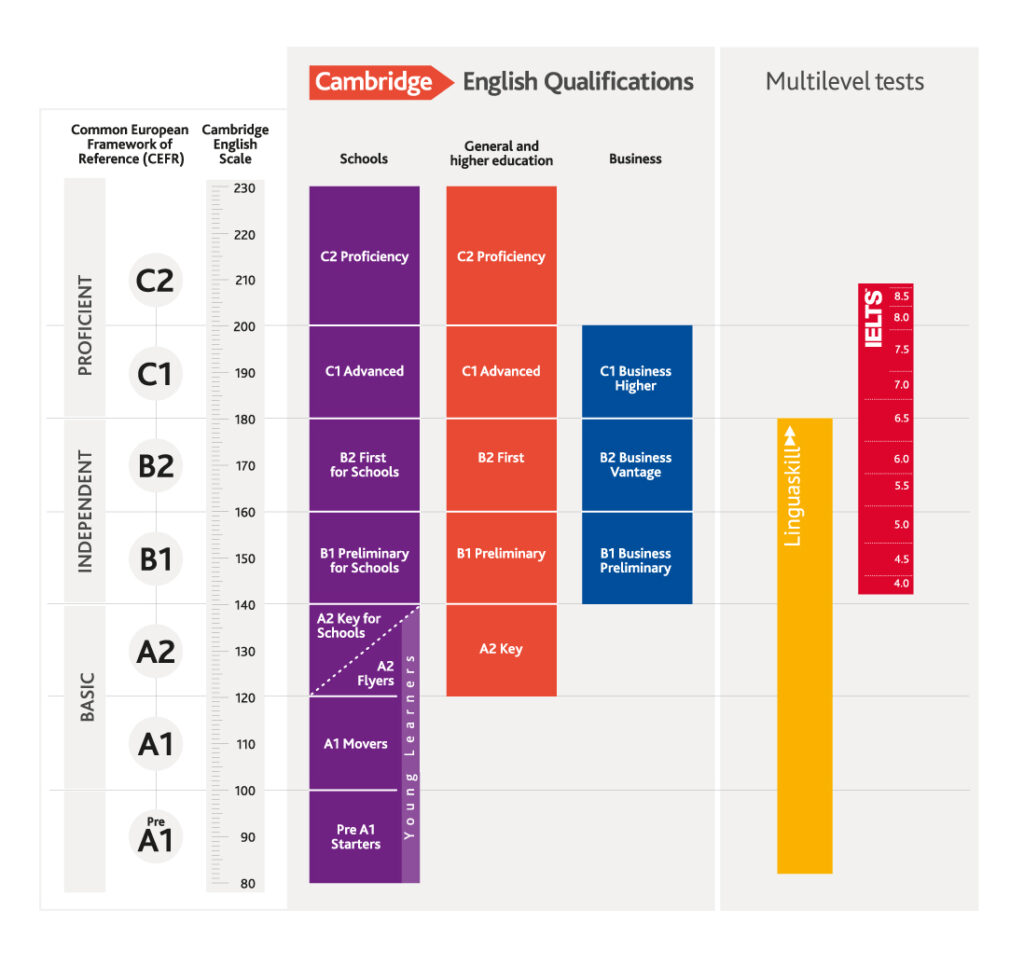
- Use the CEFR to IELTS conversion table (the one above) to estimate your approximate score. I would highly recommend you to get a professional tutor to assess your current English level since assessment tests available online, just like those short ones included in English books, hardly ever provide an objective evaluation of your English competence.
- IELTS Scoring in detail can be found here. From my experience of taking and teaching IELTS, if your current level is Intermediate to Intermediate plus, your predicted score will be 5.5 to 6.5 overall (with 5.0 – 6.0 in writing). Upper Intermediate students may aim for bands 6.5 – 7.0 (with 6.0 – 6.5 in writing). Advanced learners are likely to score 7.0 -8.0 overall (with 6.5 – 7.0 in writing).
𝗦𝗧𝗘𝗣 𝟯. Rid of any illusions you may have about hacking the test and be prepared to work hard for your desired score. You may strike it lucky and get half a band (+0.5) higher than you actually deserve in every part except writing, which usually provides the most objective assessment of your current level. Remember, if the system could be hacked or tricked, the IELTS test would have already lost its credibility and you would not need to take it!:-)
𝗦𝗧𝗘𝗣 𝟰.
A. If your current level corresponds with the desired band score, start preparing for the exam straight away allowing yourself at least 3 months for the preparation. I will be writing about it in one of my future posts.
B. In case the desired score exceeds your current level, consider improving your general English skills, before setting about your preparation. What will happen if you start preparing for the test even though your actual English level is lower than your projected IELTS score is that you may follow in the footsteps of some unwise students taking IELTS 5-10 times in 1-2 years and scoring approximately the same band in each part! Once you have taken your grammar and vocabulary to the level that matches your target band score, START preparing for your IELTS exam. I will be writing about it in one of my future posts.
For better quality, click the link
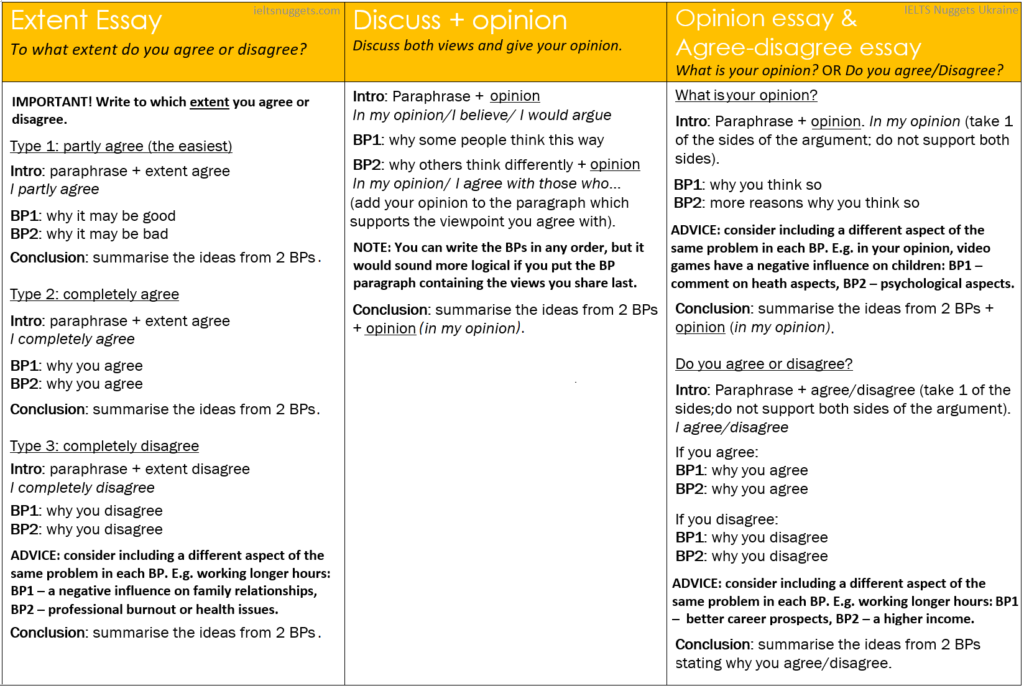
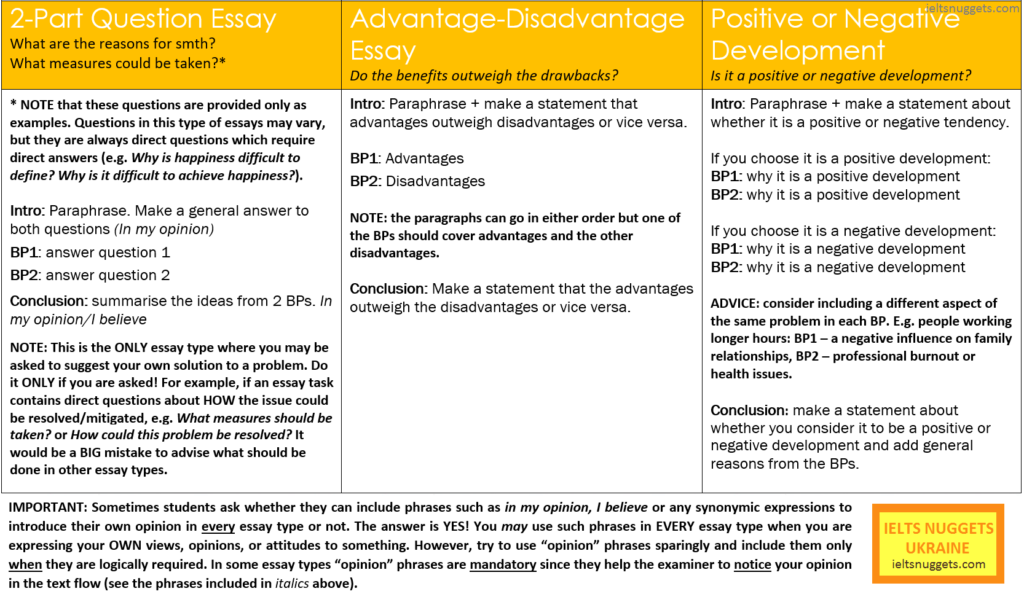
These tables provide a clear and concise description of all the types of IELTS essays (writing task 2). The information is based on a detailed analysis of model essays included in official IELTS preparation materials, as well as sample essays by expert IELTS tutors (ieltsliz.com and ielts-simon.com).
Adhering to my principle of not adding to the overflow of the information on the Internet, I’d recommend you to watch this useful video by Oxford Online English. It provides a clear and professional explanation of what a collocation is:
In brief:
A collocation is a standard word combination which sounds natural to the ear of a native speaker, e.g. graduate from university – this is a collocation, which sounds natural; complete university – this is not a collocation, so it sounds understandable but weird.
Moreover,
Referring to the official IELTS writing task 2 band descriptors, students aiming for band 7 and higher are required to use collocations. They are also supposed to be able to express their thoughts with “some flexibility” and “awareness of style”, which is impossible to do without using collocations.
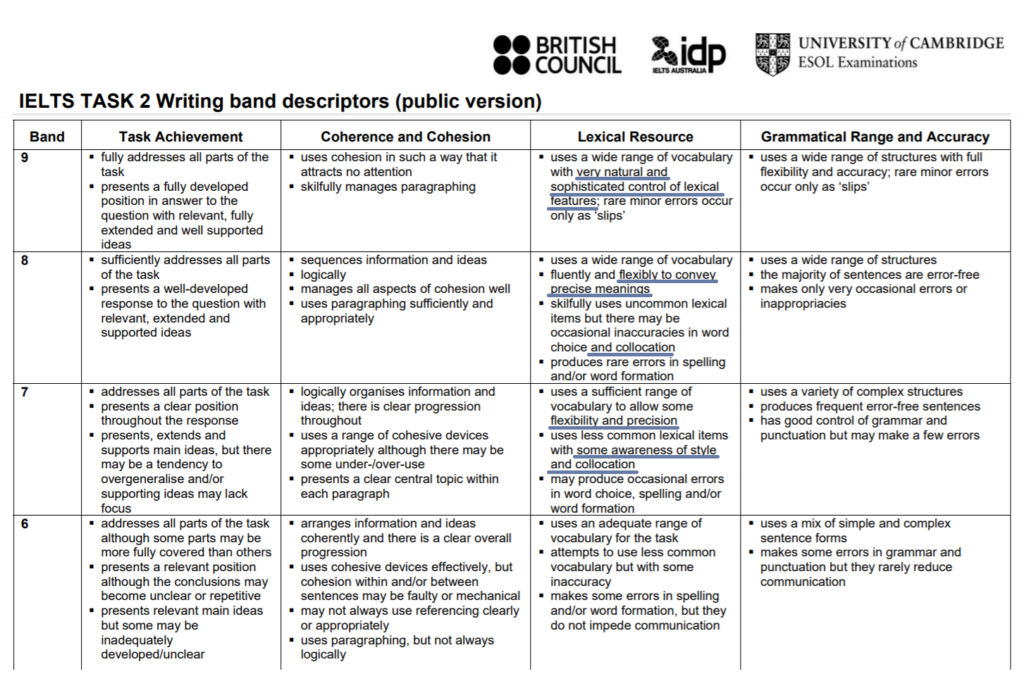
To conclude:
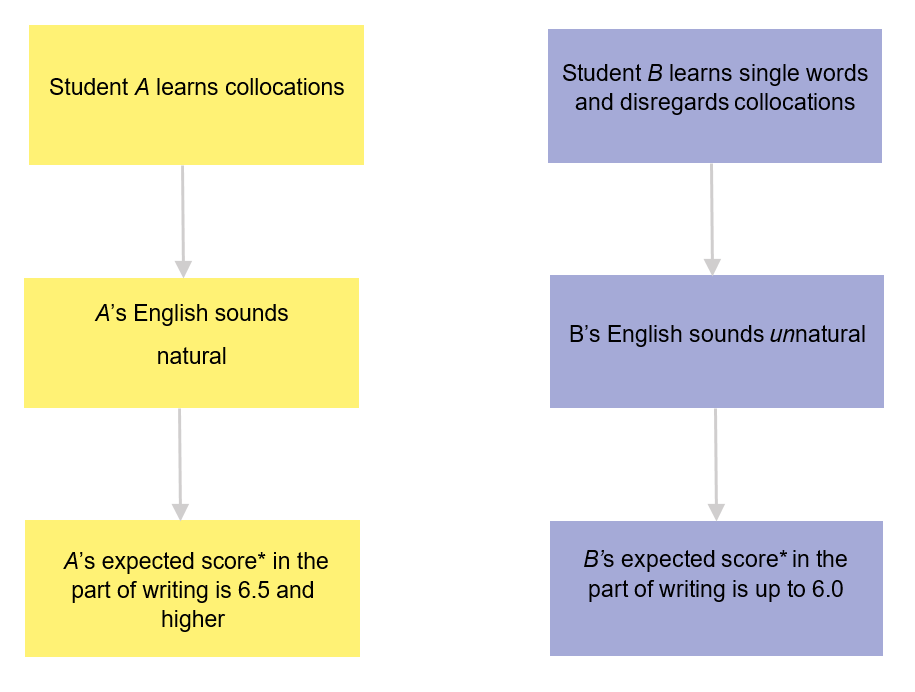
Score* – here I mean an approximate score of a non-native speaker in the part of Writing. The estimate is based on the information from the official IELTS band descriptors, as well as on my teaching experience, and backed up by IELTS test takers’ results.
vocabularytips – enter this tag in the search field above to reach all the posts containing advice on how to improve your vocabulary range.
